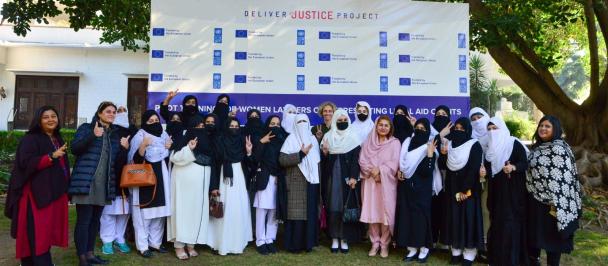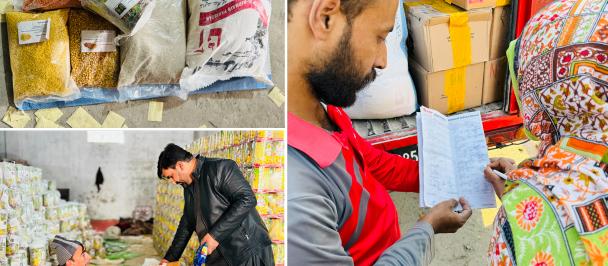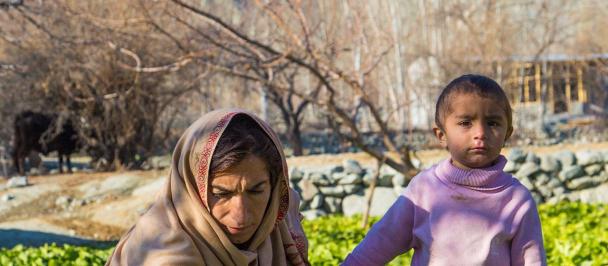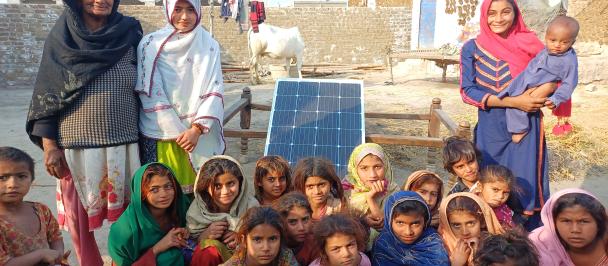Empowering Commercial Hubs: Clean Water & Hygiene for Sustainable Growth in Merged Areas
March 25, 2024
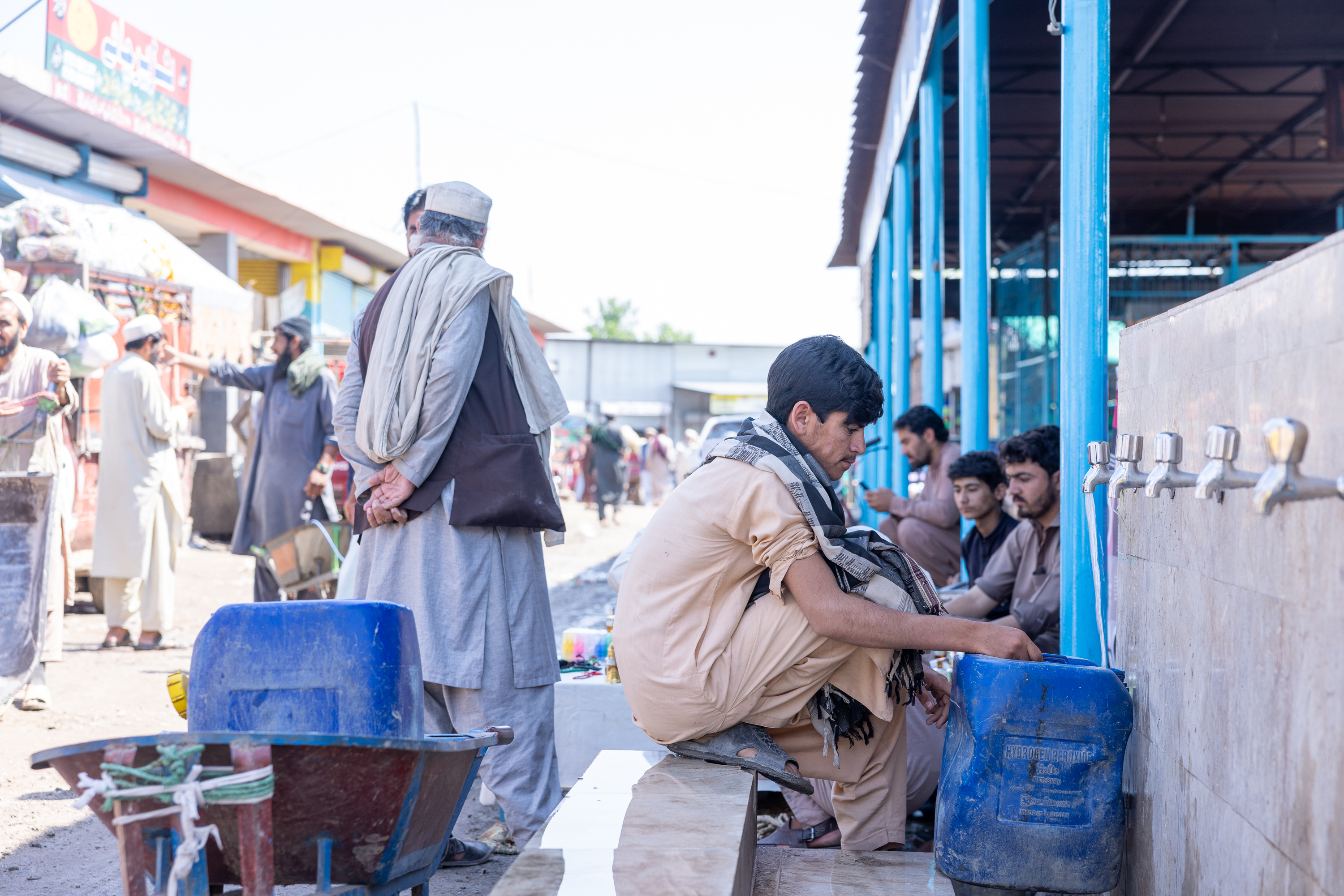
A local vendor fills up drinking water from a water collection point established by UNDP.
Background:
The merged areas of Khyber Pakhtunkhwa in Pakistan have long struggled with infrastructure degradation and a lack of essential services, particularly in the aftermath of conflicts and displacement. Access to clean water and adequate sanitation facilities has emerged as a critical issue affecting public health and hindering economic development.
Aligned with Goal 6 of the Sustainable Development Goals (SDGs) – Ensure availability and sustainable management of water and sanitation for all" – the United Nations Development Programme (UNDP), supported by the United States Agency for International Development (USAID) and implementing partners, undertook initiatives to address these pressing needs. From July 2019 to June 2020, the project successfully restored 90 markets, 30 each in commercial hubs of North Waziristan, South Waziristan, and Khyber, aiming to rejuvenate local economies and improve the livelihoods of residents.
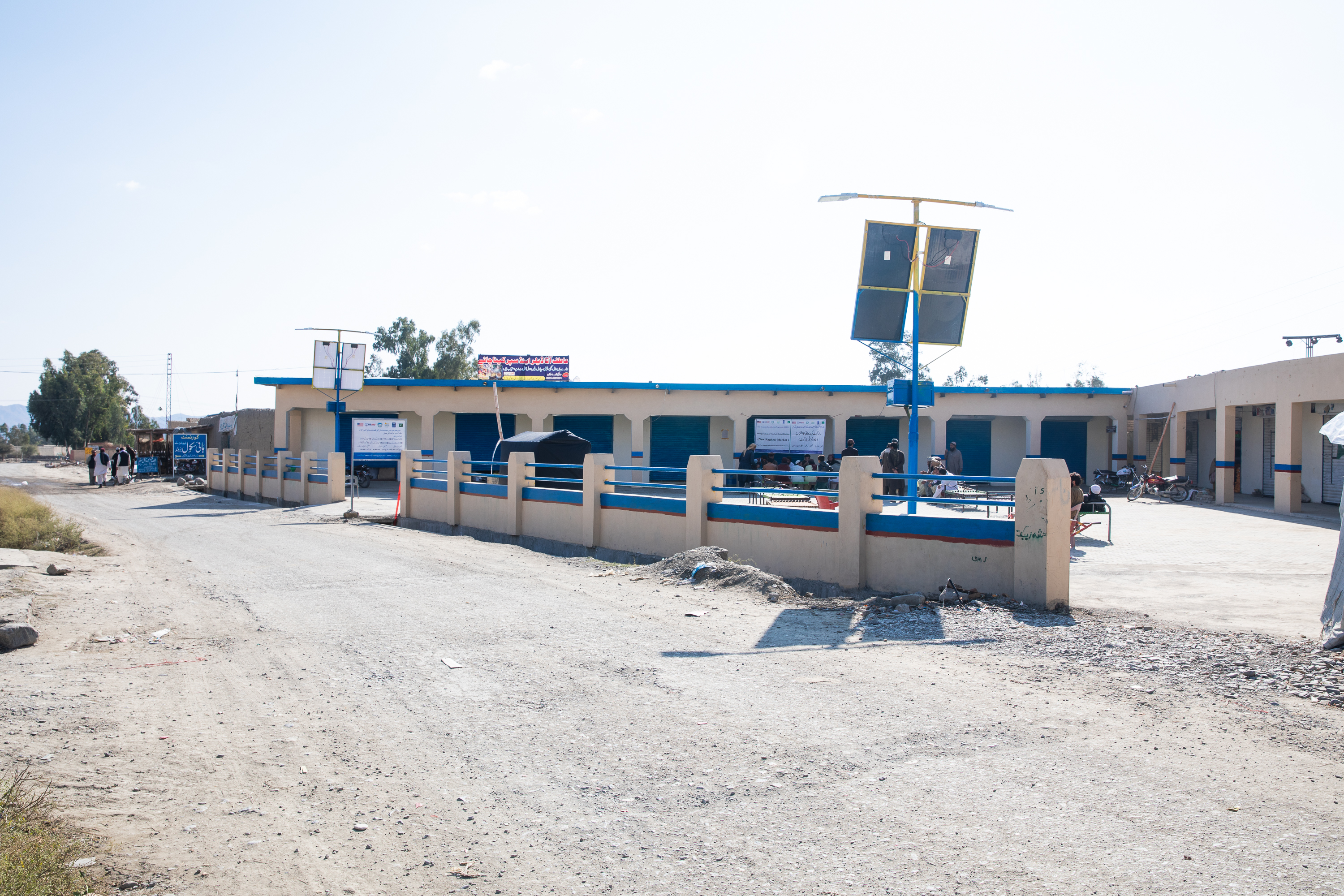
Snapshot of the new Raghzai market rehabilitated by USAID funded FERP project in Tehsil Sarwakai of South Waziristan district during September 2019.
Improving Infrastructure:
To further stabilize and sustain the economic gains of these commercial hubs, UNDP completed the rehabilitation of 75 WASH facilities within these markets, previously rehabilitated during first phase of the project. Additionally, two water filtration plants were established in the Khyber district.
Lack of Basic WASH Facilities:
The markets in the merged areas stand as stark reminders of the region's underdevelopment and lack of basic facilities. One of the most pressing issues faced by these markets was the absence of adequate Water, Sanitation, and Hygiene (WASH) facilities. The water scarcity led shopkeepers to buy costly unfiltered water from tankers. Poor sanitation and drainage, alongside a lack of gender-segregated facilities, discouraging customers, which not only compromises public health but also impacts economic activities.
"Before project interventions, accessing clean drinking water and washrooms was a daily challenge for us and discomfort for our customers. We had to cover approximately 1,000 meters, to find suitable toilet facility."Wazir, Qayum Khel Workshop in Bara, Khyber district.
Addressing WASH Challenges:
In October 2022, UNDP, with support from USAID, started construction of 75 water, sanitation, and hygiene (WASH) facilities across commercial hubs in Khyber, North Waziristan, and South Waziristan districts under the FATA Economic Revitalization Programme (FERP).
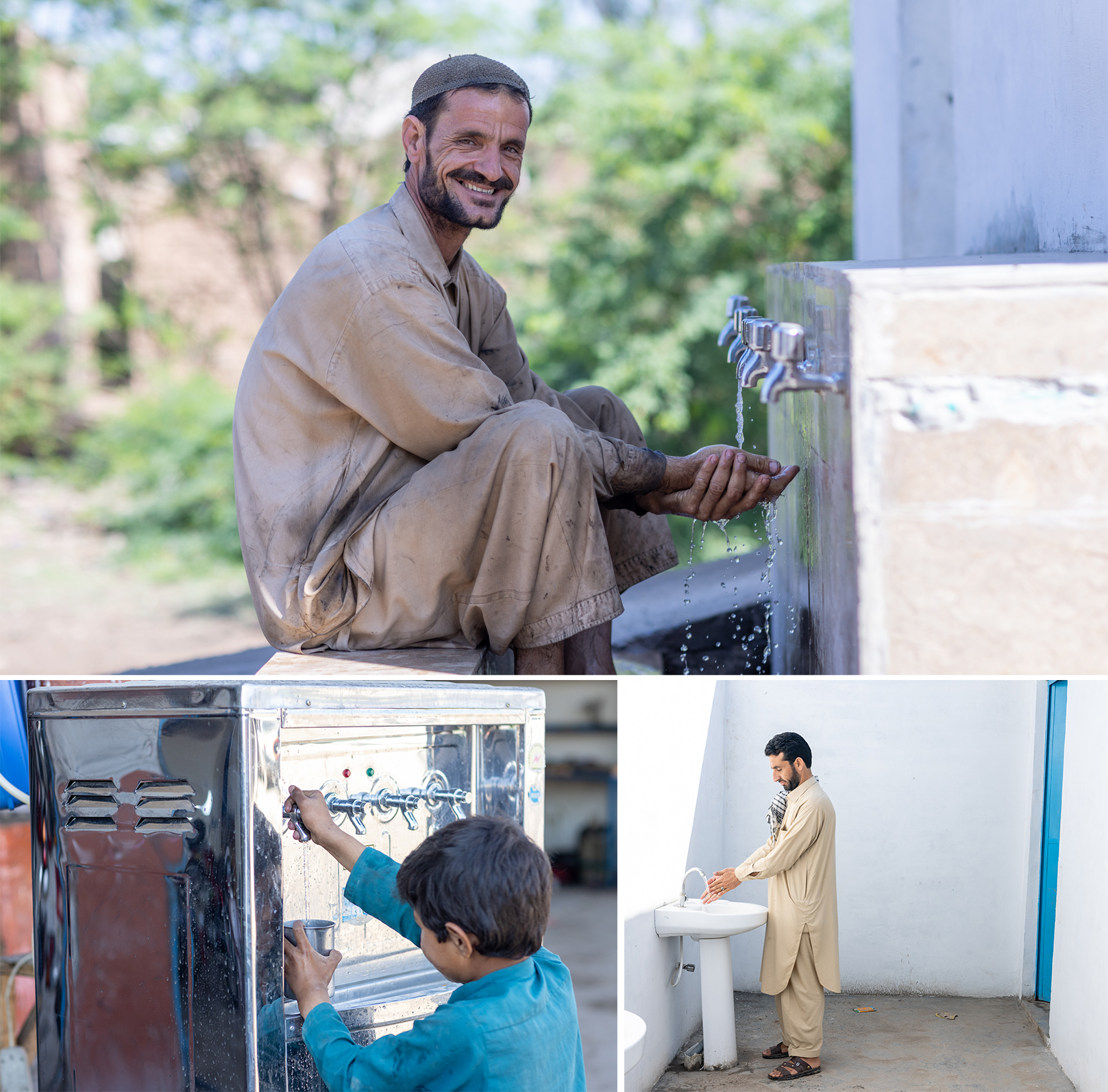
The markets now offer improved WASH facilities and comfortable access to clean drinking water for the customers visiting the market.
The rehabilitated WASH facilities include gender–segregated twin toilets blocks, bore-wells powered by solar energy, water storage tanks, clean and cold drinking water coolers, hand washing facilities, sewerage systems, and two water purification plants in Khyber district.
“Since the beginning of 2023, USAID and UNDP have been improving the WASH facilities in our market. They made significant upgrades, such as installing a solar-powered bore-well, constructing gender–segregated toilet blocks, and providing an electric water cooler. These improvements have greatly benefited our community, offering better access to essential facilities.”Wazir, Bara, Khyber district.
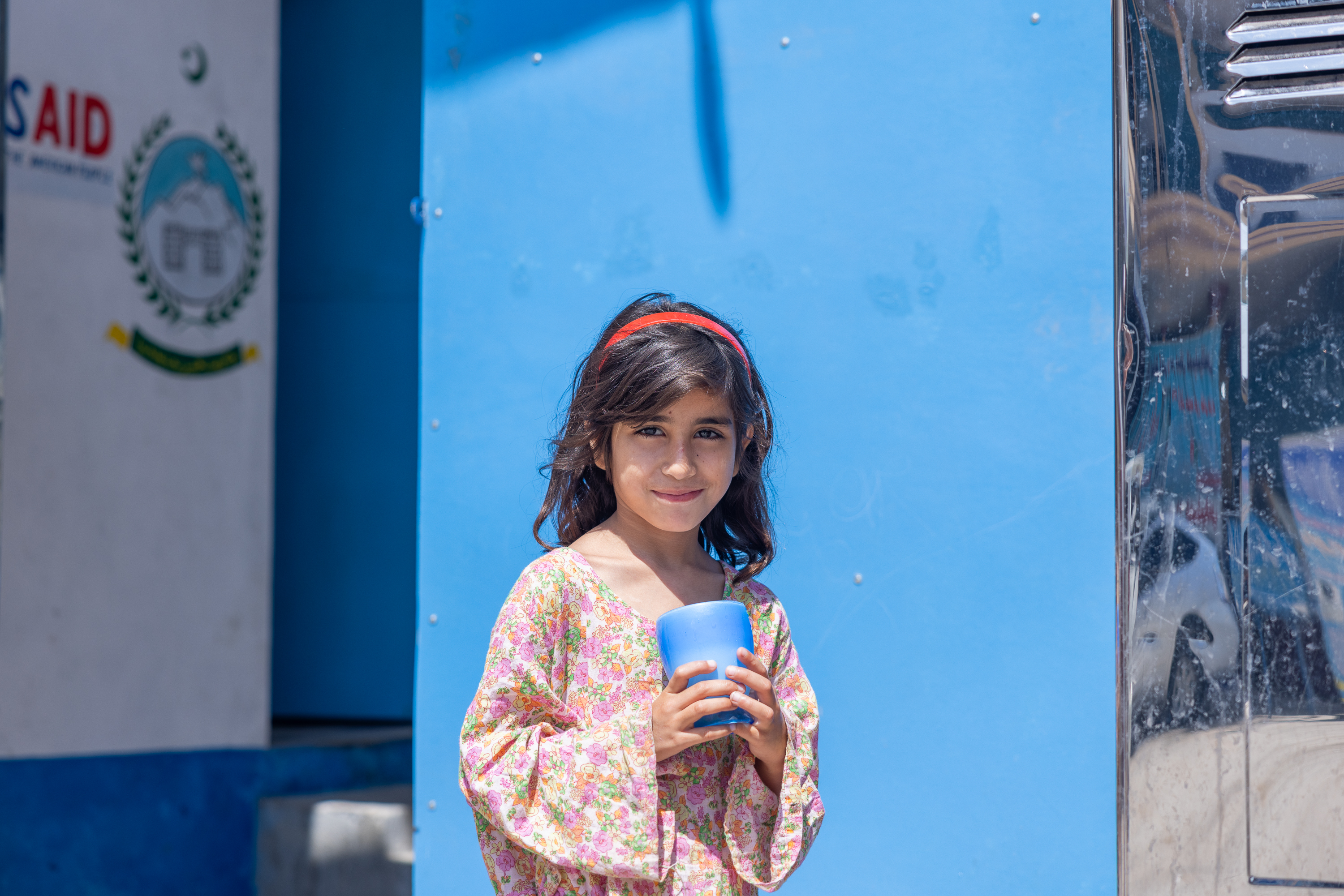
“The introduction of dedicated toilet blocks for women in Khyber is entirely a new concept, and it has been warmly welcomed by the community. It is providing tremendous relief to the 300 to 400 daily visitors, mainly women and children seeking medical services, in this market.”Khanajan, Jan Plaza, Bara, Khyber District.
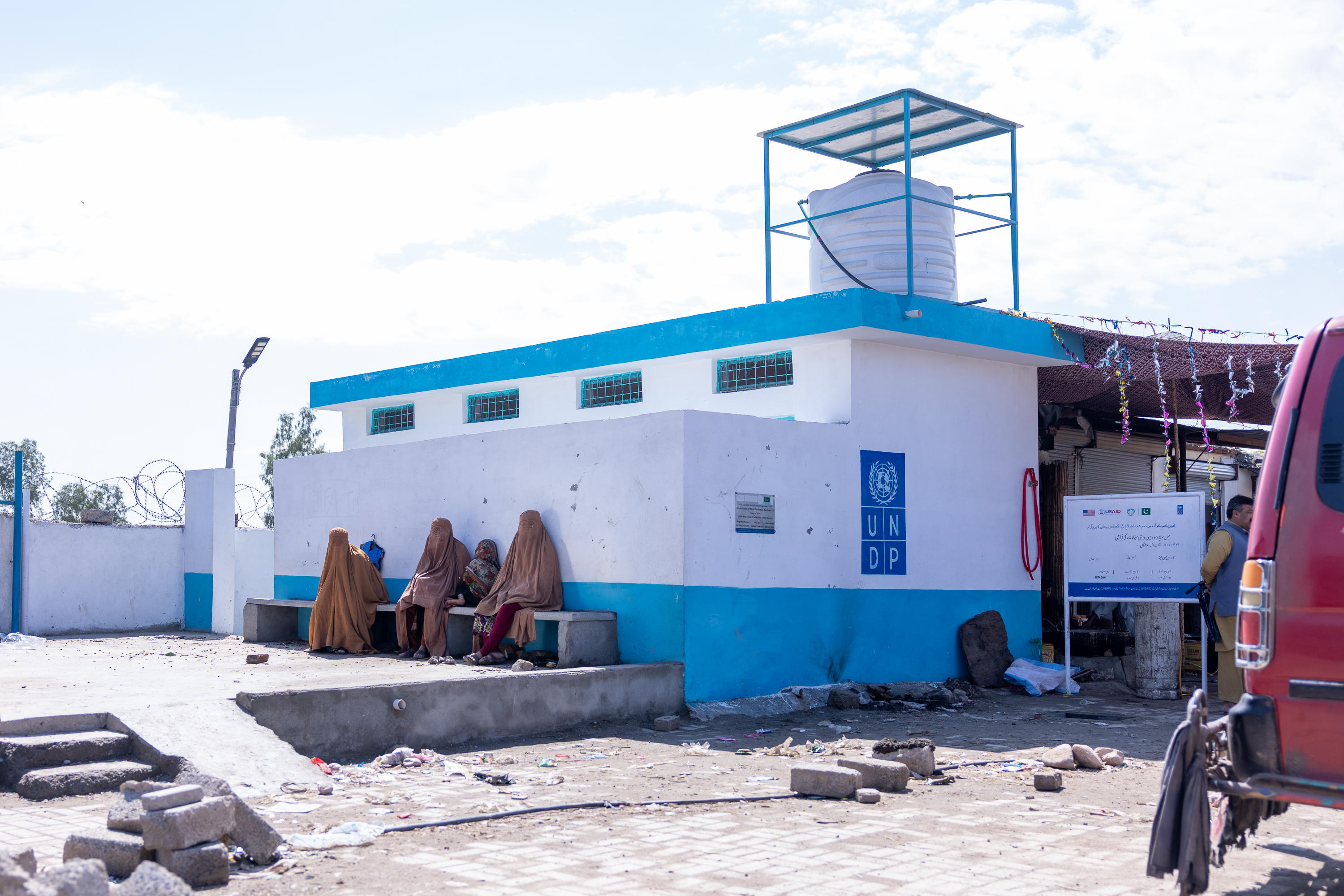
Project constructed dedicated toilet black for women and children passengers at Bara Bus stand, Khyber District.
Ms. Nasreen, who was waiting at the Bara Bus stand to return to Tirah in the Khyber district, expressed her gratitude, saying, "In the past, inadequate washroom facilities were a significant issue. Now, we have access to clean and well-equipped toilets, ensuring our dignity and privacy."
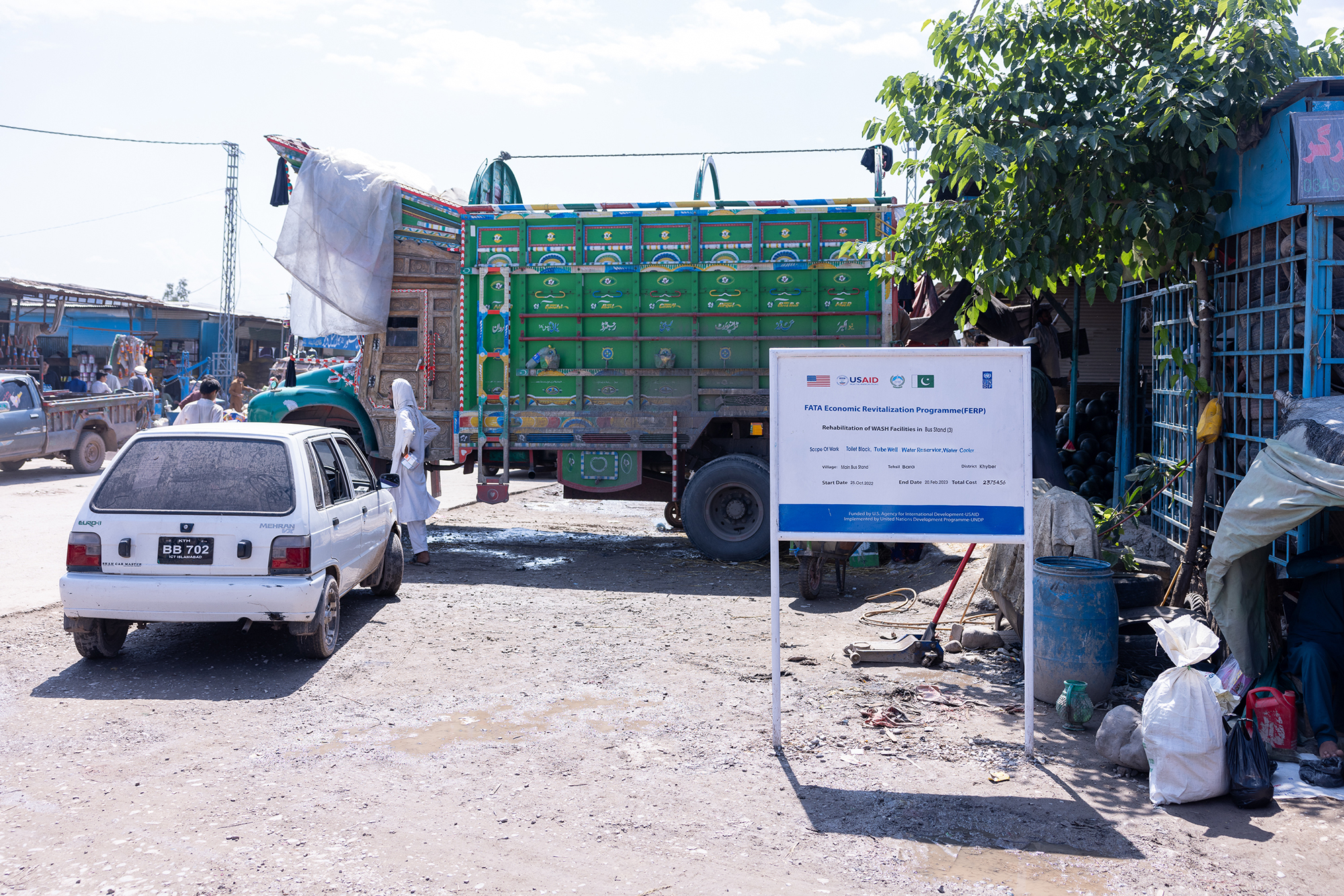
"Situated halfway, our area is a key rest point for passengers heading to the upper regions of South Waziristan. After revitalizing our market in 2020, UNDP installed a tubewell and separate restroom facilities. This has significantly improved the accessibility of clean and comfortable WASH facilities for passengers."Shahzad, Hotel owner, Ahmadwam, South Waziristan
Renewable Energy Integration:
In the remote areas of Khyber, North, and South Waziristan, where access to reliable electricity is limited due to frequent and prolonged load shedding, the project has successfully installed solar-powered bore-wells. These bore-wells harness the power of sunlight to efficiently pump water from underground sources, providing a sustainable and uninterrupted water supply to the markets.
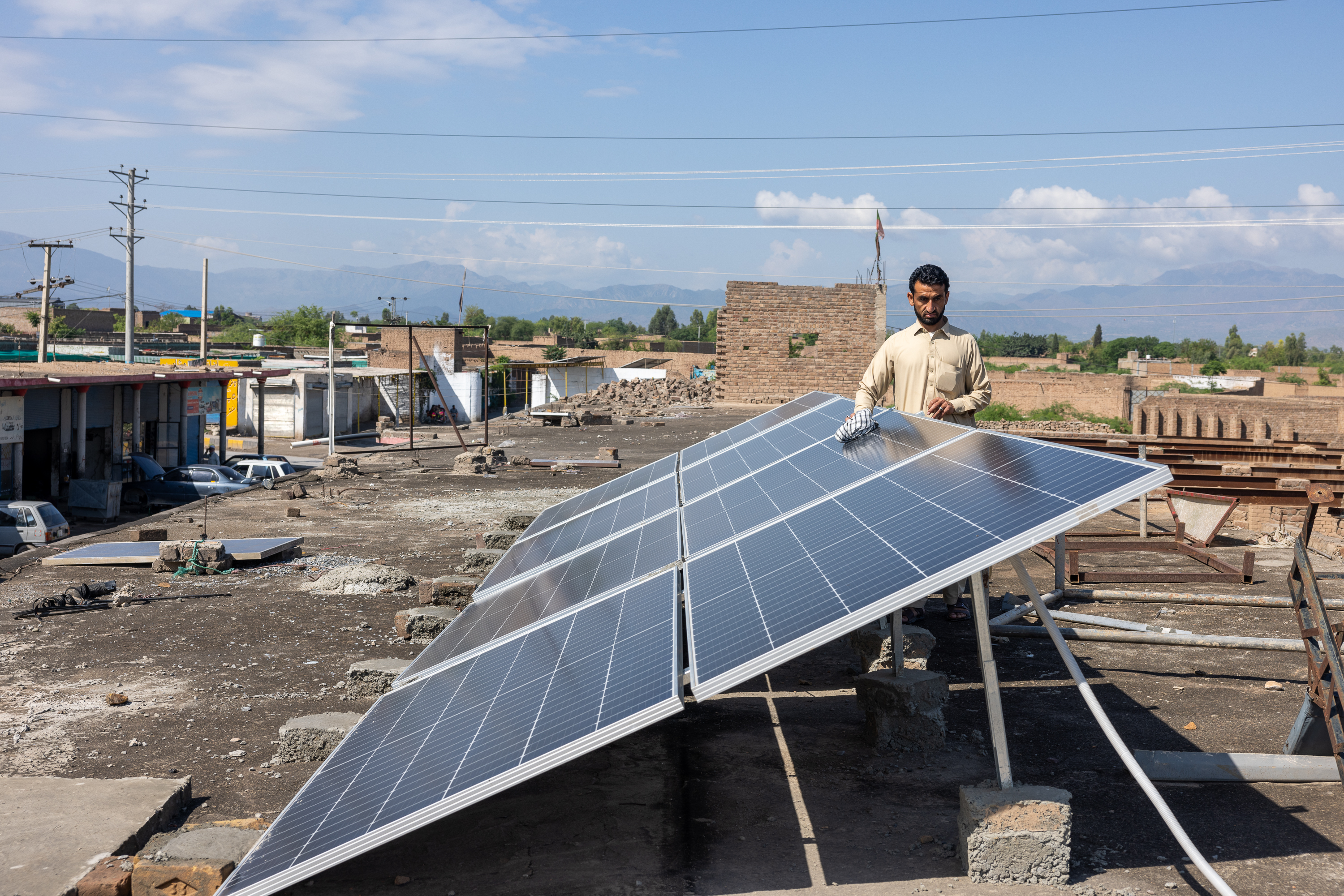
The market committee member ensures cleanliness of solar panels by removing dust to enhance the efficiency of the solar-powered bore-well.
“The solar-powered bore-well has truly transformed our lives. Even in the absence of electricity, we now have a sustainable solution. Previously, we had to travel long distances to access water, but now we have a convenient solar-powered pump in our market. Solar energy is free, but we don’t waste water and encourage responsible water usage.”Muhammad Farooq, President of the Market Committee, Qayum Khel Auto Market.

Two water filtration plants have been successfully established in Khyber District, providing clean and safe drinking water to local communities.
In the Khyber district of merged areas, the establishment of two water filtration plants has been a transformative development for the local communities. These plants have significantly improved access to purified and safe drinking water, reducing the prevalence of water-related illnesses and enhancing overall well-being.
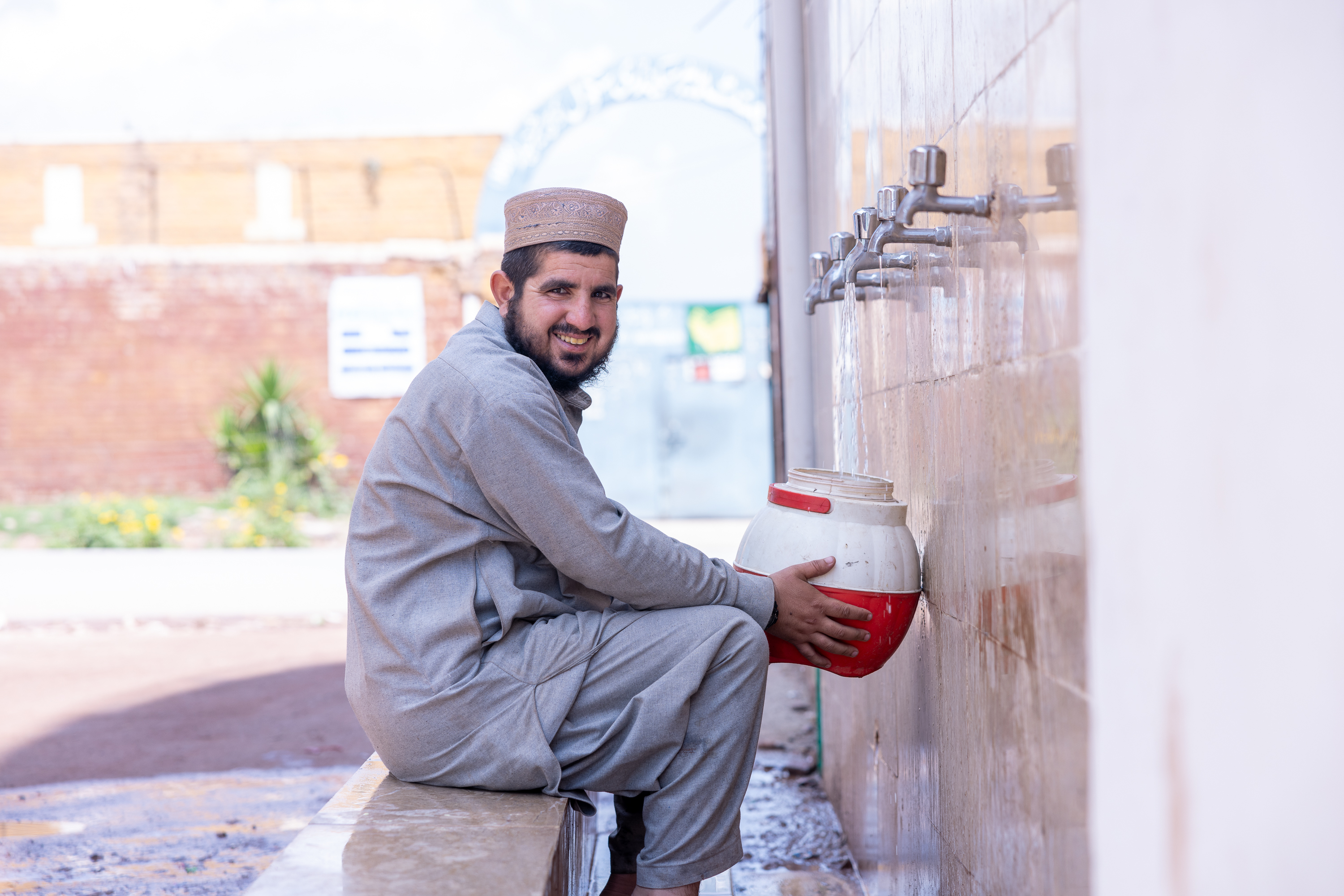
“The establishment of this filtration plant has been a game-changer. Clean drinking water is now readily available right next to my market, which has made my life so much easier. The plant benefits large community in the area who happily utilize this filtered, clean water for their daily needs.”Abdul Basir, Shop Owner, Kohi Market, Khyber.
Collaboration and Sustainability:
The project highlights the effective partnerships and collaborations between stakeholders, especially the district administration and local market committees. Operations and maintenance (O&M) trainings were conducted for market committee members ensure the long term sustainability and continued functionality of the rehabilitated facilities.
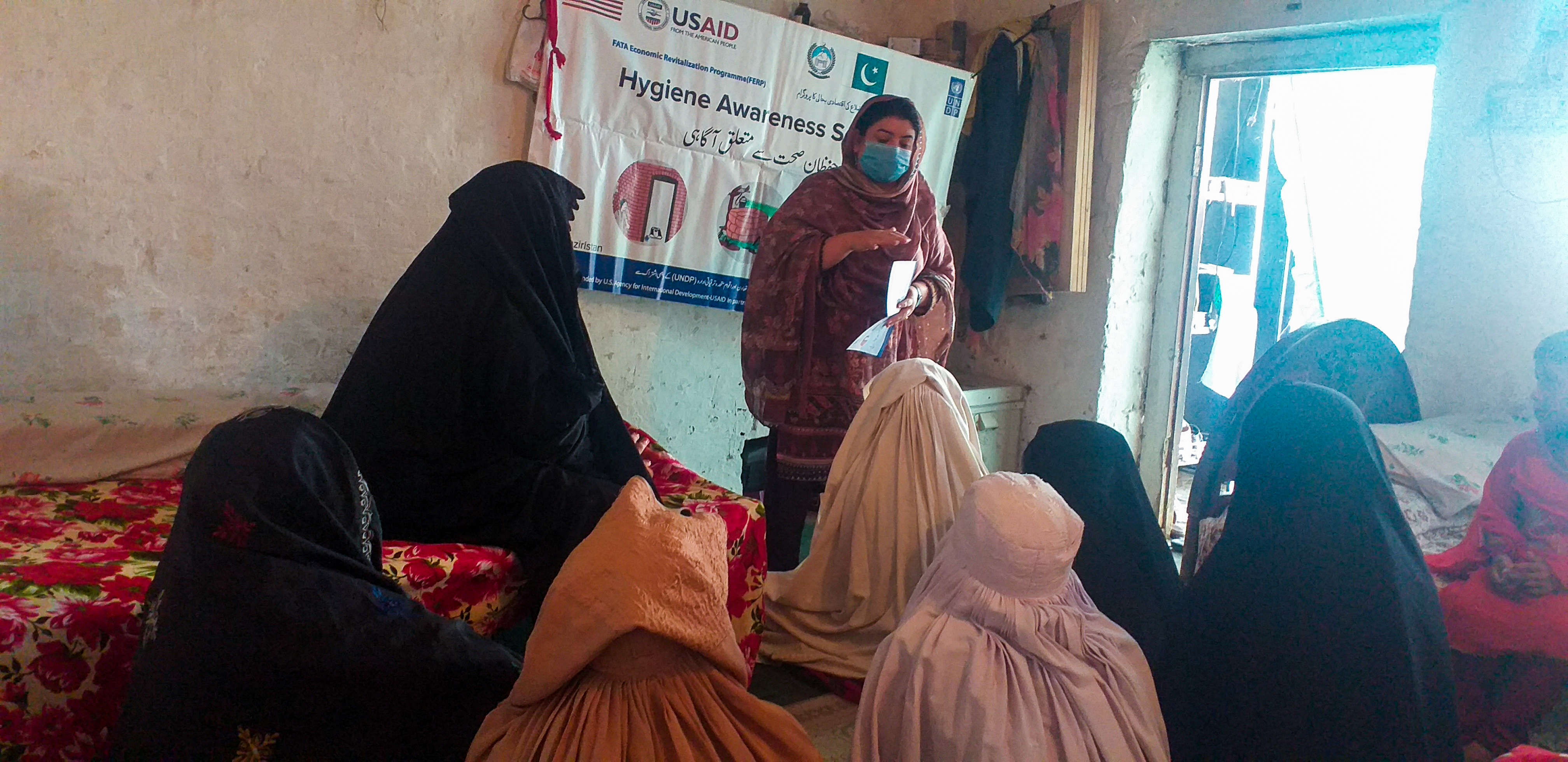
Engaging with the nearby local community in South Waziristan, project staff delivers a session on hygiene awareness for women.
Community Awareness and Impact:
Hygiene promotion sessions and community awareness campaigns were conducted to empower the community and promote positive changes in living conditions. The newly-rehabilitated WASH facilities have made the commercial hubs more customer-friendly, boosting business activities and contributing to the economic uplift of the area.
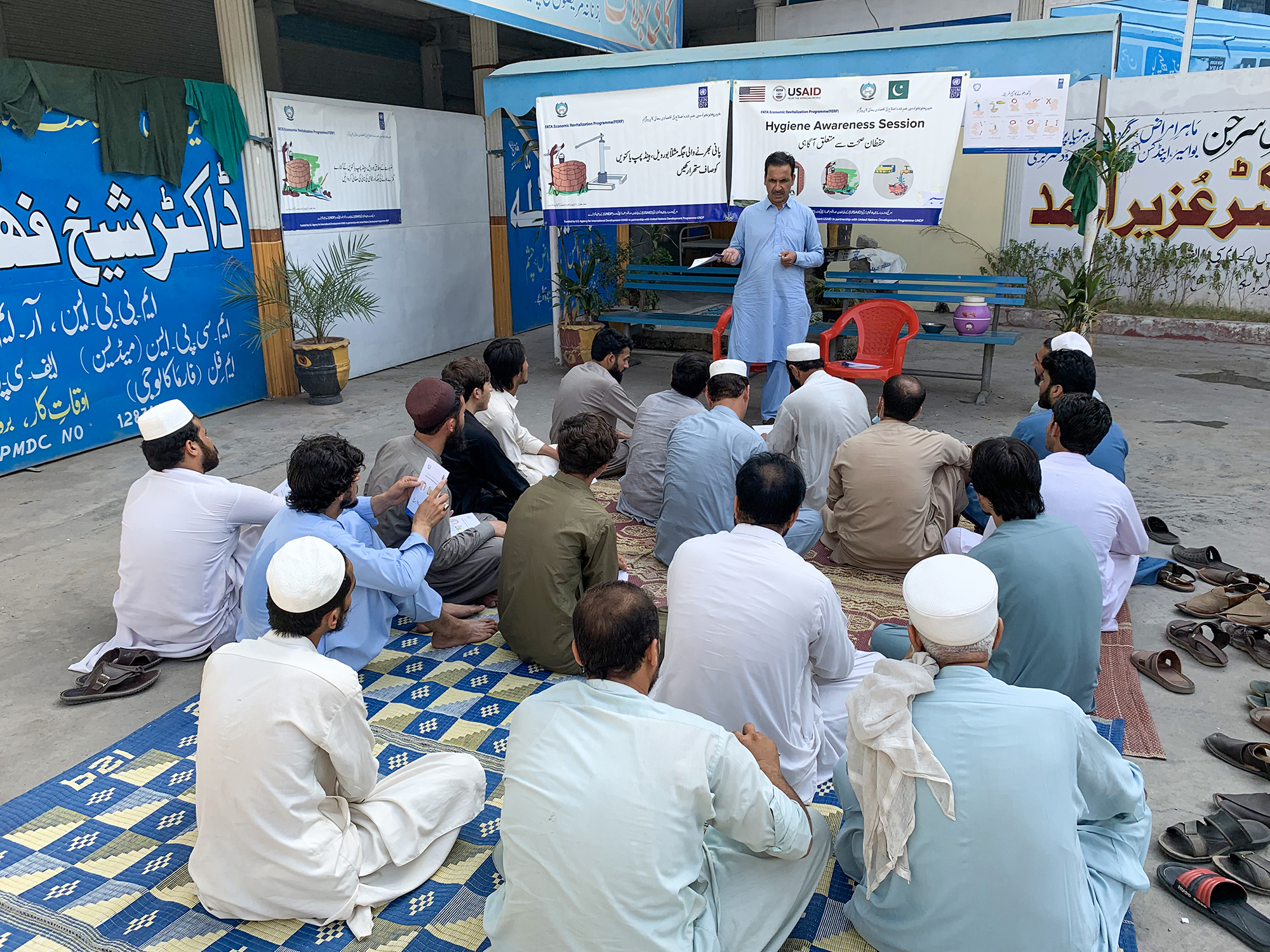
Raising community awareness in Khyber District through an informative session
The project enhanced the community's awareness by producing Information, Education, and Communication (IEC) materials about safe water usage, proper sanitation, and good hygiene practices. These visually engaging materials in local language aimed to empower the community, regardless of literacy levels to help communities improve health and well–being, leading to positive changes in living conditions.
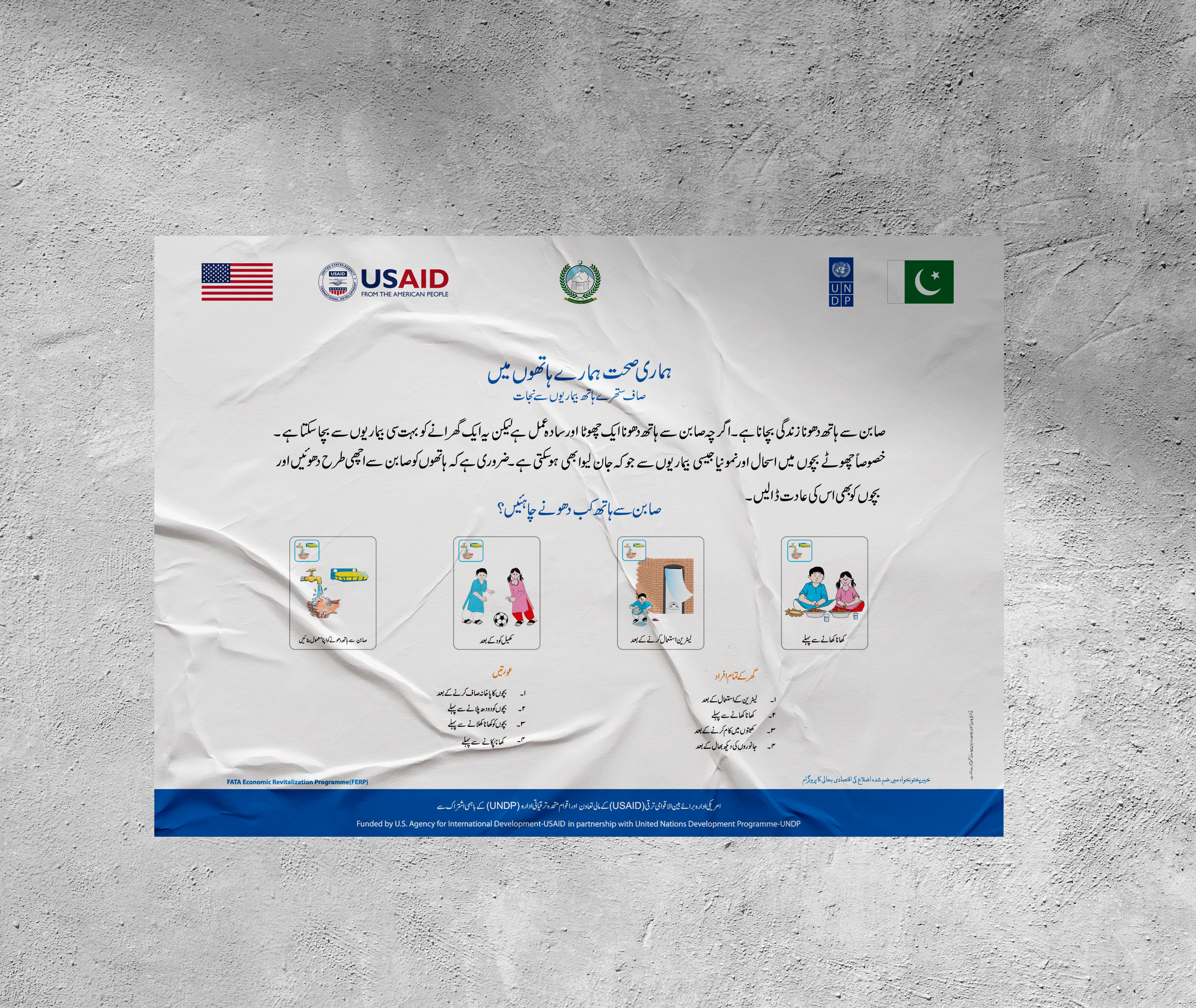
The project developed Information, Education and Communication (IEC) materials to enhance community awareness.
Impact of interventions:
The newly–rehabilitated WASH facilities have made the commercial hubs more customer–friendly, provided access for 136,120 individuals (55,428 women) to clean drinking water and for 26,580 individuals (6,800 women) to basic sanitation services. The project interventions have helped boost business activities and contributing towards the economic uplift of the area.
“Over the past 15 years, I have witnessed a remarkable change in this market. The availability of improved facilities has been a pivotal factor in its growth. Once merely an open space lacking basic amenities, it has now evolved into a well-developed market with water and WASH facilities. Among cattle markets in the surrounding districts, this one stands out for its better infrastructure.”Mr. Bashir, Sarban, a cattle businessman.
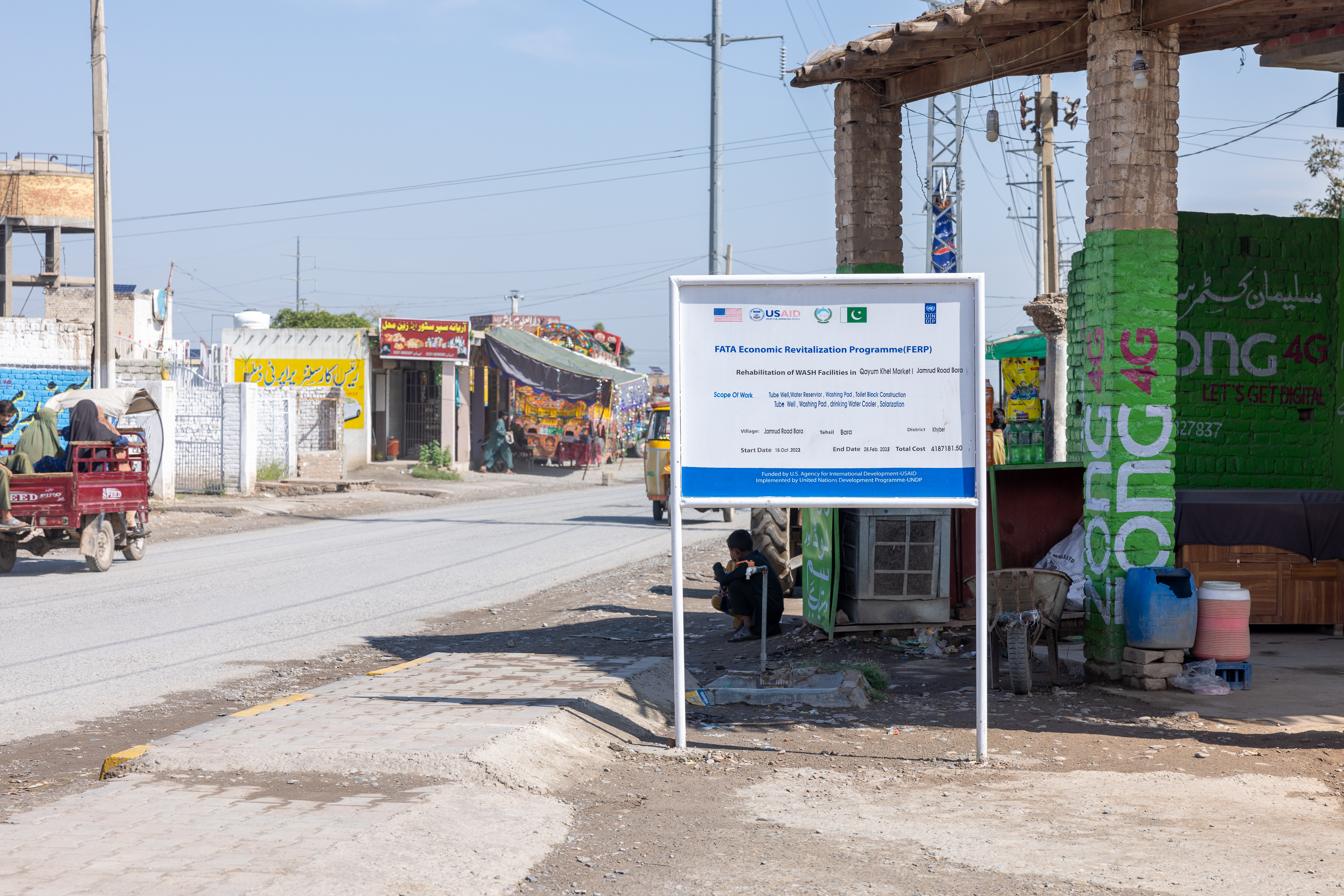
“Thanks to the collaborative efforts of UNDP and USAID, the comprehensive infrastructure has brought immense advantages to our community.”Mr. Khanajan, Jan Plaza, Bara.
Project Background:
With financial support from the United States Agency for International Development (USAID) the FATA Economic Revitalization Programme (FERP) is promoting sustainable livelihood opportunities and contribute to the long-term economic growth of merged areas in Khyber Pakhtunkhwa (KP).
Story and visuals by:
Shahzad Ahmad
Communication Officer,
Stabilization and Inclusive Development Programme (SIDP),
UNDP Pakistan.

 Locations
Locations
